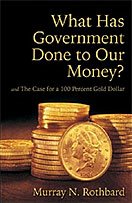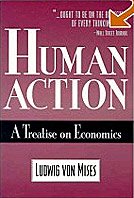U.S. nuclear energy push could generate more global competition for uranium
Mineweb: Strategic consulting firm Stratfor suggests the resurgence of U.S. nuclear energy demand may be stalled by a lack of domestic waste repositories.
Author: Dorothy Kosich
Posted: Monday , 16 Apr 2007
RENO, NV -
Austin, Texas, strategic consulting firm Stratfor suggests that a renewed push for U.S. nuclear energy "could lead to even more global competition for uranium and a boom in nuclear energy investment."
The biggest stumbling block to domestic nuclear power is the lack of a nuclear storage facility, Stratfor warned in a recently published global market brief.
The proposed Yucca Mountain national repository in Nevada remains stalled, while concerns about terrorism have slowed the Bush Administration's Global Nuclear Energy Partnership (GNEP) promoting the reprocessing of nuclear fuel. Meanwhile, the storage of nuclear waste at nuclear facilities has drawn substantial local opposition.
Stratfor's analysis found that the United States may have to take a second look at nuclear energy "since expected GHG (Global Greenhouse Gases) regulations and requirements for coal plants to use cleaner technology will make coal-power energy more expensive." Nevertheless, the report suggests that "merely replacing the existing U.S. fleet of nuclear reactors could be worth as much money as all of the planned expansions in France, Russia and China combined."
"Such a development would not only revolutionize the U.S. domestic nuclear industry but would also lead to expanded nuclear technology research and development worldwide," Stratfor asserted. "Also U.S. acceptance of nuclear energy will likely lead to a quick increase in nuclear operations in other industrialized countries that have been hesitant to pursue further nuclear activity because of safety concerns."
"In the long term, geopolitical struggles for uranium supplies could emerge, with Central Asian countries and Russia becoming increasingly important players in world energy markets."
Stratfor contends that other factors will generate increased support for U.S. nuclear energy including: a younger generation--too young to recall nuclear disasters-concerned about the impacts of climate change; the growing popularity of energy independence with politicians and the general public; and support by some environmentalists for nuclear energy.
Internationally, industrial nations currently dependant on nuclear power now seek to secure uranium supplies in the face of growing global demand, particularly from developing countries such as China and India. While Stratfor acknowledged the possibility of future short-term uranium supply shortages, "the longer trend of rising uranium prices [as much as 57% this year] will not abate."
"Behind this surge are myriad developments attributable to increasing concern about rising petroleum prices; a belief that nuclear energy development can aid domestic energy security as natural gas and oil supplies from unstable countries increasingly are seen as risky; and current and expected fossil fuel energy sources," according to Stratfor.
Regulations on fuels emitting GHG will make fossil fuel more expensive compared to nuclear energy, Stratfor claimed.
Nations with abundant supplies of fossil fuels and uranium, such as Australia and Russia, can export uranium, develop their own nuclear industries, or pursue a combination of both. "Australia, which has massive coal supplies, is more likely to develop nuclear energy in response to carbon regulations, rather than out of a desire to bolster its exports of other energy supplies," Stratfor suggested.
In the U.S., Stratfor cited TXU's plan to scrap the majority of its planned coal plants and, instead, build two to five new nuclear plants in Texas. "The highly publicized private equity takeover of the energy utility company and its deal with national environmental groups, which dropped their lawsuits against the TXU's proposals to build 11 coal plants, was a major symbolic turning point," Stratfor said. "It bolstered environmentalists' belief that attacking coal expansion is an effective way to force companies to pursue cleaner energies. As coal plants continue to come under attack, nuclear energy will only grow more attractive."
Stratfor noted that more than 20 proposed U.S. nuclear facilities are now undergoing regulatory review, "and many in the industry and the Bush Administration act as if increased nuclear development is a reality."
Nonethless, "as long as Yucca Mountain is sidelined, with no immediate solution in sight, the risks involved in developing nuclear facilities facility will prevent a significant boom in the industry," Stratfor concluded.
Author: Dorothy Kosich
Posted: Monday , 16 Apr 2007
RENO, NV -
Austin, Texas, strategic consulting firm Stratfor suggests that a renewed push for U.S. nuclear energy "could lead to even more global competition for uranium and a boom in nuclear energy investment."
The biggest stumbling block to domestic nuclear power is the lack of a nuclear storage facility, Stratfor warned in a recently published global market brief.
The proposed Yucca Mountain national repository in Nevada remains stalled, while concerns about terrorism have slowed the Bush Administration's Global Nuclear Energy Partnership (GNEP) promoting the reprocessing of nuclear fuel. Meanwhile, the storage of nuclear waste at nuclear facilities has drawn substantial local opposition.
Stratfor's analysis found that the United States may have to take a second look at nuclear energy "since expected GHG (Global Greenhouse Gases) regulations and requirements for coal plants to use cleaner technology will make coal-power energy more expensive." Nevertheless, the report suggests that "merely replacing the existing U.S. fleet of nuclear reactors could be worth as much money as all of the planned expansions in France, Russia and China combined."
"Such a development would not only revolutionize the U.S. domestic nuclear industry but would also lead to expanded nuclear technology research and development worldwide," Stratfor asserted. "Also U.S. acceptance of nuclear energy will likely lead to a quick increase in nuclear operations in other industrialized countries that have been hesitant to pursue further nuclear activity because of safety concerns."
"In the long term, geopolitical struggles for uranium supplies could emerge, with Central Asian countries and Russia becoming increasingly important players in world energy markets."
Stratfor contends that other factors will generate increased support for U.S. nuclear energy including: a younger generation--too young to recall nuclear disasters-concerned about the impacts of climate change; the growing popularity of energy independence with politicians and the general public; and support by some environmentalists for nuclear energy.
Internationally, industrial nations currently dependant on nuclear power now seek to secure uranium supplies in the face of growing global demand, particularly from developing countries such as China and India. While Stratfor acknowledged the possibility of future short-term uranium supply shortages, "the longer trend of rising uranium prices [as much as 57% this year] will not abate."
"Behind this surge are myriad developments attributable to increasing concern about rising petroleum prices; a belief that nuclear energy development can aid domestic energy security as natural gas and oil supplies from unstable countries increasingly are seen as risky; and current and expected fossil fuel energy sources," according to Stratfor.
Regulations on fuels emitting GHG will make fossil fuel more expensive compared to nuclear energy, Stratfor claimed.
Nations with abundant supplies of fossil fuels and uranium, such as Australia and Russia, can export uranium, develop their own nuclear industries, or pursue a combination of both. "Australia, which has massive coal supplies, is more likely to develop nuclear energy in response to carbon regulations, rather than out of a desire to bolster its exports of other energy supplies," Stratfor suggested.
In the U.S., Stratfor cited TXU's plan to scrap the majority of its planned coal plants and, instead, build two to five new nuclear plants in Texas. "The highly publicized private equity takeover of the energy utility company and its deal with national environmental groups, which dropped their lawsuits against the TXU's proposals to build 11 coal plants, was a major symbolic turning point," Stratfor said. "It bolstered environmentalists' belief that attacking coal expansion is an effective way to force companies to pursue cleaner energies. As coal plants continue to come under attack, nuclear energy will only grow more attractive."
Stratfor noted that more than 20 proposed U.S. nuclear facilities are now undergoing regulatory review, "and many in the industry and the Bush Administration act as if increased nuclear development is a reality."
Nonethless, "as long as Yucca Mountain is sidelined, with no immediate solution in sight, the risks involved in developing nuclear facilities facility will prevent a significant boom in the industry," Stratfor concluded.















![[Most Recent Quotes from www.kitco.com] [Most Recent Quotes from www.kitco.com]](http://www.kitco.com/images/live/t24_au_en_usoz_6.gif)
![[Most Recent Quotes from www.kitco.com] [Most Recent Quotes from www.kitco.com]](http://www.kitco.com/images/live/au_go_0030_ny.gif)
![[Most Recent Quotes from www.kitco.com] [Most Recent Quotes from www.kitco.com]](http://www.kitco.com/images/live/au_go_0365_ny.gif)
![[Most Recent Quotes from www.kitco.com] [Most Recent Quotes from www.kitco.com]](http://kitconet.com/charts/metals/silver/t24_ag_en_usoz_4.gif)

















0 ΣΧΟΛΙΑ (COMMENTS):
Post a Comment
<< Home